Related Research Articles

The International Monetary Fund (IMF) is a major financial agency of the United Nations, and an international financial institution, headquartered in Washington, D.C., consisting of 190 countries. Its stated mission is "working to foster global monetary cooperation, secure financial stability, facilitate international trade, promote high employment and sustainable economic growth, and reduce poverty around the world." Formed in 1944, started on 27 December 1945, at the Bretton Woods Conference primarily by the ideas of Harry Dexter White and John Maynard Keynes, it came into formal existence in 1945 with 29 member countries and the goal of reconstructing the international monetary system. It now plays a central role in the management of balance of payments difficulties and international financial crises. Countries contribute funds to a pool through a quota system from which countries experiencing balance of payments problems can borrow money. As of 2016, the fund had XDR 477 billion. The IMF is regarded as the global lender of last resort.

The economy of Senegal is driven by mining, construction, tourism, fishing and agriculture, which are the main sources of employment in rural areas, despite abundant natural resources in iron, zircon, gas, gold, phosphates, and numerous oil discoveries recently. Senegal's economy gains most of its foreign exchange from fish, phosphates, groundnuts, tourism, and services. As one of the dominant parts of the economy, the agricultural sector of Senegal is highly vulnerable to environmental conditions, such as variations in rainfall and climate change, and changes in world commodity prices.

The United States is a highly developed mixed-market economy. It is the world's largest economy by nominal GDP, and the second-largest by purchasing power parity (PPP) behind China. It has the world's seventh-highest per capita GDP (nominal) and the eighth-highest per capita GDP (PPP) as of 2022. The U.S. accounted for 24.7% of the global economy in 2022 in nominal terms, and around 15.5% in PPP terms. The U.S. dollar is the currency of record most used in international transactions and is the world's foremost reserve currency, backed by the nation’s massive economy, stable government and legal framework, large U.S. treasuries market, advanced military, its role as the reference standard for the petrodollar system, and its linked eurodollar. Several countries use it as their official currency and in others it is the de facto currency.
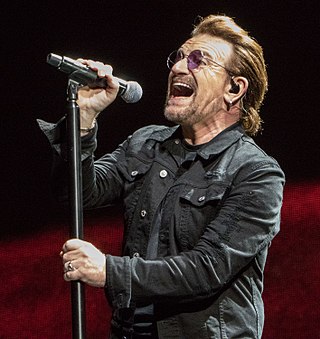
Paul David Hewson, known by his stage name Bono, is an Irish singer-songwriter, activist, and philanthropist. He is the lead vocalist and primary lyricist of the rock band U2.

The United Nations Development Programme (UNDP) is a United Nations agency tasked with helping countries eliminate poverty and achieve sustainable economic growth and human development. The UNDP emphasizes developing local capacity towards long-term self-sufficiency and prosperity.

Robert Frederick Zenon Geldof is an Irish singer-songwriter and political activist. He rose to prominence in the late 1970s as lead singer of the Irish rock band the Boomtown Rats, who achieved popularity as part of the punk rock movement. The band had UK number one hits with his co-composition "Rat Trap" and his lone composition "I Don't Like Mondays". Geldof starred as Pink in Pink Floyd's 1982 film Pink Floyd – The Wall. As a fundraiser, Geldof organised the charity supergroup Band Aid and the concerts Live Aid and Live 8, and co-wrote "Do They Know It's Christmas?", one of the best-selling singles to date.
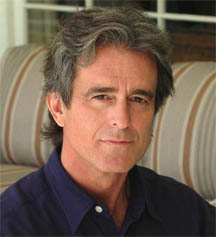
Robert Sargent Shriver III is an American activist, attorney, and journalist. He was a member of the Santa Monica City Council from 2004 to 2012, serving as mayor pro tem in 2006 and as mayor during part of 2010. A member of the Kennedy family, he is a nephew of former U.S. President John F. Kennedy and former Senators Robert F. "Bobby" Kennedy and Edward M. "Ted" Kennedy.

The Millennium Development Goals (MDGs) were eight international development goals for the year 2015 that had been established following the Millennium Summit of the United Nations in 2000, following the adoption of the United Nations Millennium Declaration. These were based on the OECD DAC International Development Goals agreed by Development Ministers in the "Shaping the 21st Century Strategy". The Sustainable Development Goals (SDGs) succeeded the MDGs in 2016.
Make Poverty History are organizations in a number of countries, which focus on issues relating to 8th Millennium Development Goal such as aid, trade and justice. They generally form a coalition of aid and development agencies which work together to raise awareness of global poverty and achieve policy change by governments. The movement exists or has existed in Australia, Canada, Denmark, Finland, New Zealand, Nigeria, Norway, Romania, South Africa, Ireland, the United Arab Emirates, the United States of America, and the United Kingdom. The various national campaigns are part of the international Global Call to Action Against Poverty campaign.

Jubilee 2000 was an international coalition movement in over 40 countries that called for cancellation of third world debt by the year 2000. This movement coincided with the Great Jubilee, the celebration of the year 2000 in the Catholic Church. The campaign has been generally hailed as very successful. As planned, the Jubilee 2000 Coalition dissolved at the end of the millennium year but left a legacy of organisations around the world.
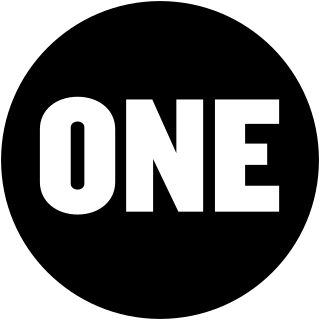
ONE Campaign is an international, non-partisan, non-profit advocacy and campaigning organization that fights extreme poverty and preventable disease, particularly in Africa, by raising public awareness and pressuring political leaders to support policies and programs that save lives and improve futures.
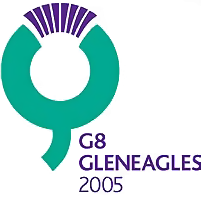
The 31st G8 summit was held on 6–8 July 2005 at the Gleneagles Hotel in Auchterarder, Scotland and hosted by Prime Minister Tony Blair. The locations of previous G8 summits to have been hosted by the UK include: London ; and Birmingham (1998). It is the first G8 summit to be held in Scotland. A sixth UK summit was held in Lough Erne in 2013; and a seventh UK summit was held in Carbis Bay in 2021.

Poverty reduction, poverty relief, or poverty alleviation, is a set of measures, both economic and humanitarian, that are intended to permanently lift people out of poverty.

Product Red, stylized as (PRODUCT)RED or (PRODUCT)RED, is a licensed brand by the company Red, stylized as (RED), that seeks to engage the private sector in raising awareness and funds to help eliminate HIV/AIDS in eight African countries, namely Eswatini (formerly Swaziland), Ghana, Kenya, Lesotho, Rwanda, South Africa, Tanzania, and Zambia. It is licensed to partner companies including Apple Inc., Nike, American Express (UK), The Coca-Cola Company, Starbucks, Converse, Electronic Arts, Primark, Head, Buckaroo, Penguin Classics (UK & International), Gap, Armani, FIAT, Hallmark (US), SAP, Beats Electronics, and Supercell. The concept was founded in 2006 by U2 frontman and activist Bono, together with Bobby Shriver of the One Campaign and DATA. The Global Fund to Fight AIDS, Tuberculosis and Malaria is the recipient of Product Red's money.
Drop the Debt is the slogan of the late 1990s campaign for international debt cancellation led by the organisation Jubilee 2000.

The diplomatic relationship between the United States of America and Zambia can be characterized as warm and cooperative. Relations are based on their shared experiences as British colonies, both before, after and during the struggle for independence. Several U.S. administrations cooperated closely with Zambia's first president, Kenneth Kaunda, in hopes of facilitating solutions to the conflicts in Rhodesia (Zimbabwe), Angola, and Namibia. The United States works closely with the Zambian Government to defeat the HIV/AIDS pandemic that is ravaging Zambia, to promote economic growth and development, and to effect political reform needed to promote responsive and responsible government. The United States is also supporting the government's efforts to root out corruption. Zambia is a beneficiary of the African Growth and Opportunity Act (AGOA). The U.S. Government provides a variety of technical assistance and other support that is managed by the Department of State, U.S. Agency for International Development, Millennium Challenge Account (MCA) Threshold Program, Centers for Disease Control and Prevention, Department of Treasury, Department of Defense, and Peace Corps. The majority of U.S. assistance is provided through the President's Emergency Plan for AIDS Relief (PEPFAR), in support of the fight against HIV/AIDS.
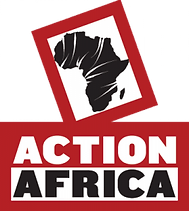
Africa Action is a nonprofit organization that is based in Washington, D.C., working to change U.S.–Africa relations to promote political, economic and social justice in nations of Africa. They provide accessible information and analysis, and mobilize popular support for campaigns to achieve this mission.
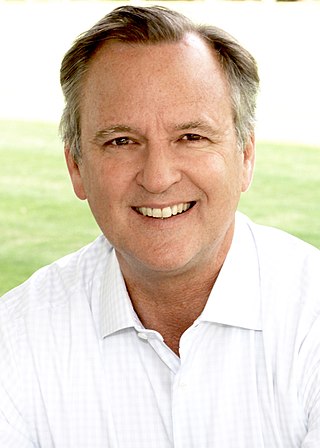
David J. Lane was named president of the Annenberg Foundation Trust in September 2016. The non-profit organization operates the Annenberg Retreat at Sunnylands in Rancho Mirage, California. Lane is chairman of The Stimson Center.

Humanitarianism in Africa refers to the intentions and actions of people, nations, and organizations to alleviate human suffering in Africa. Humanitarian policies have focused on improving problems in Africa such as poverty, poor-health, corruption, and ethnic/inter-state conflict. Prominent entities which engage in humanitarian action in Africa include but are not limited to: foreign nations like the United States (US), domestic nations like South Africa, international organizations like the World Bank, the International Monetary Fund (IMF), and the United Nations (UN), Non-Governmental Organizations (NGOs) like the Red Cross and Doctors Without Borders, and even personal celebrities like Bono. Prominent methods of promoting humanitarianism in Africa have been foreign aid, humanitarian intervention, and UN sanctioned peacekeeping.

The World Bank is an international financial institution that provides loans and grants to the governments of low- and middle-income countries for the purpose of pursuing capital projects. The World Bank is the collective name for the International Bank for Reconstruction and Development (IBRD) and International Development Association (IDA), two of five international organizations owned by the World Bank Group. It was established along with the International Monetary Fund at the 1944 Bretton Woods Conference. After a slow start, its first loan was to France in 1947. In the 1970s, it focused on loans to developing world countries, shifting away from that mission in the 1980s. For the last 30 years, it has included NGOs and environmental groups in its loan portfolio. Its loan strategy is influenced by the United Nations' Sustainable Development Goals, as well as environmental and social safeguards.
References
- ↑ Josh Tyrangiel (2005-12-19). "The Constant Charmer". Time . Archived from the original on January 5, 2013.
- ↑ Lesley Wroughton (2007-10-29). "Bono's U.S.-based anti-poverty groups to merge". Reuters .